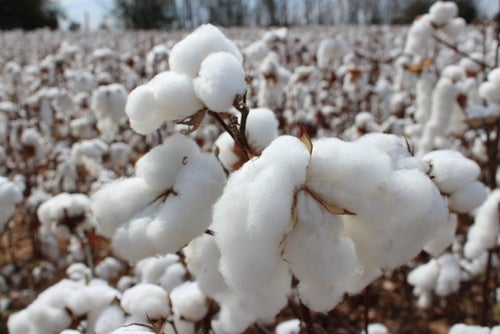
The UNECE Sustainability Pledge is an open-source suite of policy recommendations, guidelines, and standards that enable industry actors to authenticate their sustainability claims. Its ultimate goal is to establish a Community of Practice, where stakeholders collaborate to develop traceability and transparency as enablers for sustainability and circularity.
Alia Malik, senior director of data and traceability at Better Cotton said: “We are signing UNECE’s Sustainability Pledge not only to affirm our commitment to improving traceability and transparency in Better Cotton supply chains but also in support of traceability and the use of more credible sustainability claims across the industry.”
The UNECE recognises the importance of knowledge exchange and open dialogue and launched the framework to give companies, academics and topic experts ways to collectively advance supply chain transparency.
It believes that by recognising legitimate tools and projects that aim to improve industry traceability, the pledge will benefit policymakers, companies, workers and consumers alike.
Elisabeth Türk, director of economic cooperation and trade at UNECE added: “Once we know the provenance of the clothes that we buy, and the path they have travelled in global value chains, then we can make informed decisions as consumers about the sustainability claims of those goods. We welcome Better Cotton’s pledge and call on other players to join and make traceability and sustainability the new normal in the textile industry.”
Better Cotton joins more than 90 other businesses, including renowned fashion brands Inditex, Vivienne Westwood, NGO WWF, digital supply chain platform Retraced, and cloud-based supply chain mapping platform FibreTrace, as a signatory to the UNECE Sustainability Pledge.

US Tariffs are shifting - will you react or anticipate?
Don’t let policy changes catch you off guard. Stay proactive with real-time data and expert analysis.
By GlobalDataBetter Cotton’s new traceability solution
Better Cotton’s submission to the pledge centres around the development of its traceability solution, which is said to be an integral part of its 2030 strategy.
With a membership base of over 2,500 organisations worldwide, it believes it is well-positioned to create a scalable solution that can be adopted globally.
The traceability solution aims to allow retailers and brand members to verify the country of origin of the Physical Better Cotton in their products. This solution will also ensure farmers and suppliers can maintain access to increasingly regulated international value chains. By implementing these traceability measures, Better Cotton aims to enhance the lives and protect the livelihoods of cotton farming communities.
Better Cotton has consulted with more than 1,500 stakeholders, including suppliers, members, and industry consultants to develop its traceability solution.
The company has outlined key actions and a timeline for the launch of the solution following the signing of its Sustainability Pledge.
Better Cotton said a phased roll-out will follow, allowing all stakeholders within the supply chain to align with the new chain of custody requirements, thereby achieving traceability before 2025.
Better Cotton pointed out the fashion and textile sectors are facing mounting regulatory pressure, particularly regarding the issue of “greenwashing,” which involves making unsubstantiated sustainability claims to deceive consumers.
The organisation explained its Traceability Solution will play a crucial role in verifying the origin and documenting the lifecycle of cotton. Initially focusing on the country level, the solution aims to enhance data granularity in the future.



